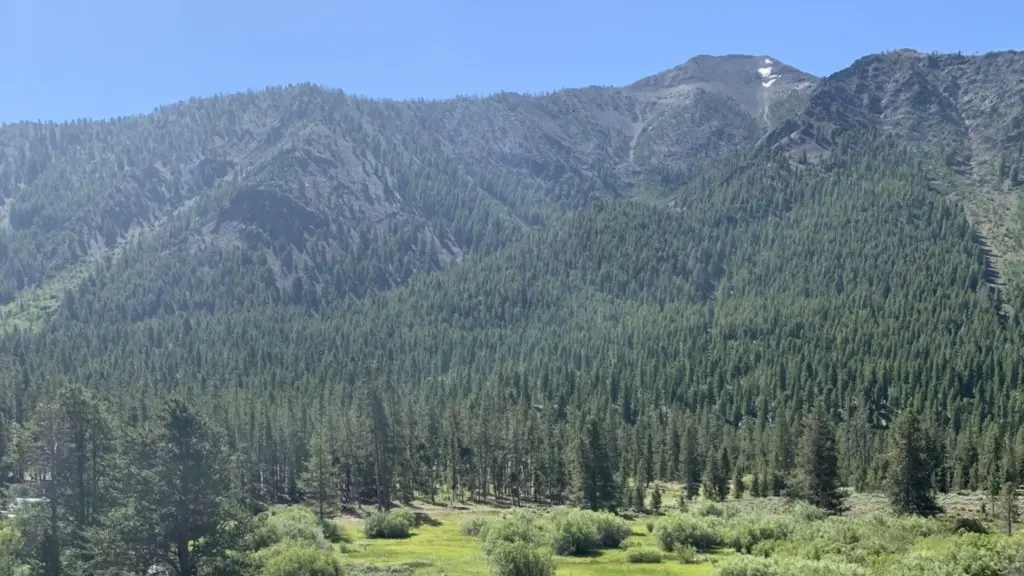WASHINGTON, D.C. – Utah Sen. Mike Lee is bringing back a proposal that would allow the federal government to sell off several million acres of public land in Western states.
Lee says it will open up “underused” federal land for housing and help communities manage growth — opponents, including a number of Democrats in Congress and environmental groups, say it’s an attempt to pay for tax cuts and warn it will jeopardize access to public lands.
Rep. Cliff Bentz, Oregon’s only Republican member of Congress, defended giving away public land during a wide-ranging recent interview with the Oregon Capital Chronicle.
“There are really good reasons many times in the West, where there are literally tens and hundreds of millions of acres of public land, to transfer a small portion of it so that we can actually grow and perhaps address, oh I don’t know, housing issues? Since everybody knows that we are desperately short of housing,” he said. “Why in the world would we try to preserve land for hunting when people are living under a tree someplace?”
Introduced Wednesday evening, Lee’s proposal, part of the 10 Senate bills that will make up Republicans’ reconciliation package nicknamed the “big, beautiful bill,” renews an effort initially spearheaded by Rep. Celeste Maloy, R-Utah, and Mark Amodei, R-Nevada, that sought to dispose of 11,500 acres of Bureau of Land Management land in southwestern Utah and some 450,000 acres of federal land in Nevada.
But Lee’s proposal is much broader — rather than earmark specific parcels of land for disposal like Maloy and Amodei’s amendment, Lee wants to require the U.S. Department of the Interior and U.S. Department of Agriculture to sell off a percentage of land managed by the Forest Service and Bureau of Land Management.
According to the Lee’s proposal, both agencies would be required to dispose of between 0.5% to 0.75% of land they manage, which amounts to about 2.2 million to 3.3 million acres. State and local governments would be allowed to nominate parcels of land, and would be granted priority to purchase.
Eleven states would be eligible — Alaska, Arizona, California, Colorado, Idaho, Nevada, New Mexico, Oregon, Utah, Washington and Wyoming. Notably, Montana is exempt, and Montana Republican Rep. Ryan Zinke was instrumental in sinking Maloy and Amodei’s original proposal, stating that selling public lands is a line he would not cross.
Though the scope is much bigger, Lee’s reasoning behind the proposal is the same as Maloy and Amodei’s — identify parcels of federal land near high-growth areas, and sell them at market value to local governments to use for housing, water infrastructure, roads and other development.
The legislation prohibits the sale of land that’s already designated, like national parks, national monuments, wilderness areas or national recreation areas. Land that has an existing right, like a mining claim, grazing permit, mineral lease or right of way is also off limits.
If it passes, the secretaries of the departments of interior and agriculture would have to prioritize nominating land that’s next to already developed areas, has access to existing infrastructure or is “suitable for residential housing.” The legislation also directs the secretaries to nominate land that’s isolated and “inefficient to manage,” and to reduce the checkerboard land pattern, the result of railroad grants in the 1800s that left small plots of private land scattered within swaths of federal land and vice-versa.
“We’re opening underused federal land to expand housing, support local development and get Washington, D.C. out of the way for communities that are just trying to grow,” Lee said in a video address. “We’re talking about isolated parcels that are difficult to manage, that are better suited for housing and infrastructure. To our hunters, anglers and sportsmen, you will not lose access to the lands you love. Washington has proven time and again it can’t manage this land. This bill puts it in better hands.”
But that reasoning didn’t fly for a number of environmental groups, including the Southern Utah Wilderness Alliance, which called Lee’s proposal an attempt “to pay for tax cuts for the ultra-wealthy.”
“Senator Lee’s never-ending attacks on public lands continue. His hostility stands in stark contrast with Americans’ deep and abiding love of public lands. Senator Lee’s plan puts Utah’s redrock country in the crosshairs of unchecked development,” said Travis Hammill, Washington, D.C. director for the alliance. “In Utah and the West, public lands are the envy of the country — but Senator Lee is willing to sacrifice the places where people recreate, where they hunt and fish, and where they make a living.”
The Center for Western Priorities, a public lands advocacy group, called Lee’s proposal “a shameless ploy to sell off pristine public lands for trophy homes and gated communities that will do nothing to address the affordable housing shortage in the West”; the National Wildlife Federation dubbed it a “fire sale” that is “orders of magnitude worse” than Maloy’s proposal; The Wilderness Society said it was “a betrayal of future generations and folks on both sides of the aisle” and warned that could spark political backlash.
Maloy’s proposal identified parcels owned by the Bureau of Land Management to sell to Washington and Beaver counties, the Washington County Water Conservancy District and the city of St. George. The land would have been used for water infrastructure (like reservoirs and wells), an airport expansion in St. George, new and widened roads, recreation and housing.
The proposal was widely celebrated by the water district and local governments, who said it would help them make adjustments as the region continues to experience rapid growth. But nearby tribes, environmentalists and politicians from both sides of the aisle were skeptical.
This stoty first appeared on Utah News Dispatch.





